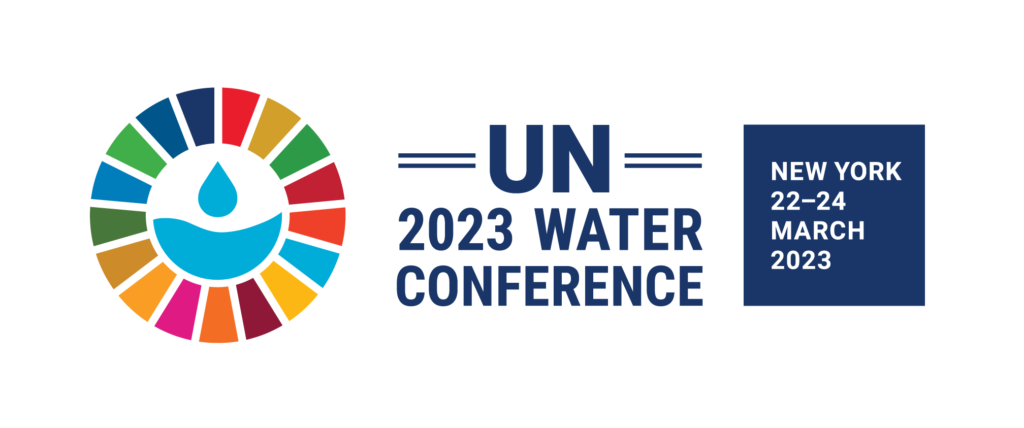
JWF organized a side event, “Pathway Forward: Water-resilient, Sustainable, and Inclusive in Asia and the Pacific,” with MLIT, Japan, and Asia-Pacific Water Forum (APWF) members on 22 March 2023 at the Trusteeship Conference Room of the UN Headquarters Inside.
Representatives from Asia and the Pacific present how to put water at the core of a quality-oriented society through policy, investment, and partnership decisions to strengthen climate resilience and socio-economic security. Government representatives from Japan, Indonesia, India, and Tajikistan presented their voluntary commitments and actions in addressing water security challenges for Climate, Resilience, and Environment in their countries.
A panel of leading experts and practitioners from the APWF members and partner organizations discussed effective strategies, valuable lessons learned, and approaches for replicating and scaling successes in addressing opportunities and challenges.
|
◆Partner organizations |
- Key recommendations for action
- Many current water resources management and water-related disaster mitigation infrastructures were designed without considering climate change, making it necessary to re-evaluate their capacity to anticipate and mitigate the impact of climate change and associated extreme events.
- Prioritize building resilient infrastructure, improving data and information management, and creating more cohesive institutional structures to address the challenges posed by climate change and water-related issues.
- Creating a safe space with manageable risks and implementing governance reforms that enable more efficient business practices is essential to attract private sector investment.
- Sharing success stories and best practices among countries in the Asia Pacific region is crucial for making progress on SDG6. A governance framework that fosters cooperation and structured learning can help identify effective strategies and provide a platform for sharing knowledge. We must also focus on integrated water resource management, considering the complex relationship between water, energy, and food, leveraging digital technologies to promote policy coherence and inclusivity, and creating synergies with climate goals, agriculture, and energy.
- Prioritize integrating water-related issues by establishing a multi-stakeholder platform to facilitate collaboration among various actors at different levels. These platforms can convene dialogues, engage other sectors, and implement interventions on the ground. Engage in multilateral processes to access relevant data, information, and policy support to address water issues at the national level.
- Effective governance is crucial for closing gaps and achieving water-related goals, and technology and infrastructure can help address some of the challenges. However, financing and inclusive partnerships that account for all stakeholders’ interests remain challenging. We should also explore demand-side options to reduce water consumption and create a market for sustainable water use that benefits all communities.
- Community-based approaches, multisectoral processes, and inclusive partnerships can help tackle interrelated water issues. We must break down sectoral barriers, promote collaboration between existing networks, and conduct research supporting transformative changes.
- Look for solutions that provide core benefits in water resource management, allowing for concurrent climate adaptation and mitigation. It is particularly relevant in urban contexts, where water-sensitive urban design principles can help manage floods and regulate temperatures while providing habitats for fauna, improving water quality, reducing pollution, and enhancing urban recreation spaces.
Please refer to the PDF document for more detail about each speaker’s talk summary and each partner organization’s Water Action Agenda.
Side Event Program
|
Session Introduction |
|
Opening remarks Welcoming Remarks |
|
Showcase presentations from several national governments in Asia and the Pacific & ADB |
|
Panel discussion: What works for improvement, replication, and scale-up |
|
Wrap-up and Closing remarks |
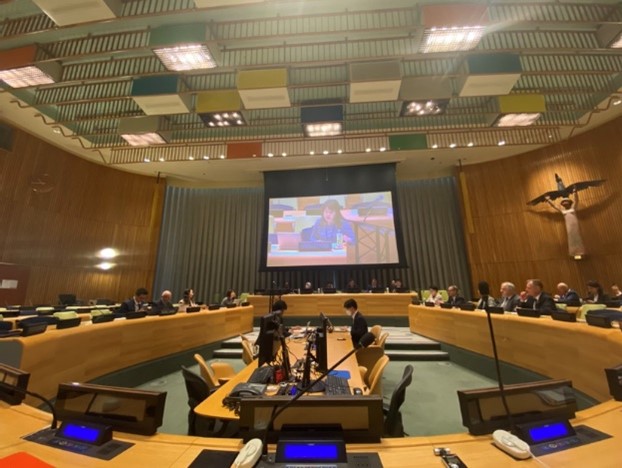
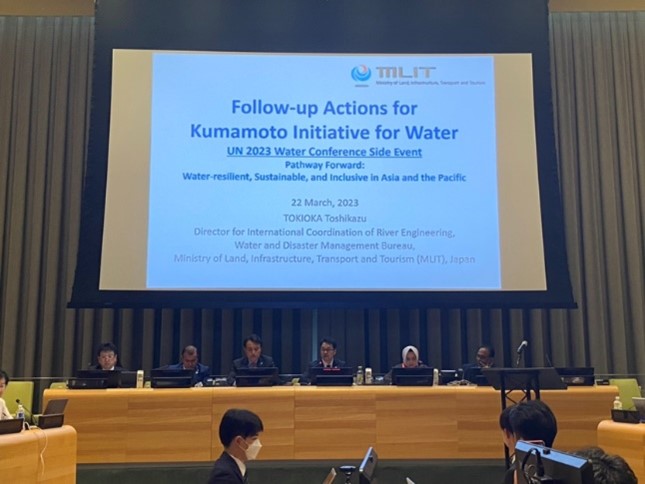
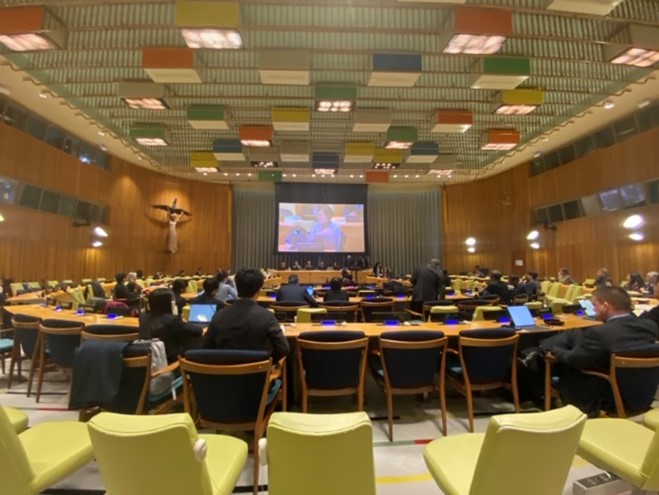
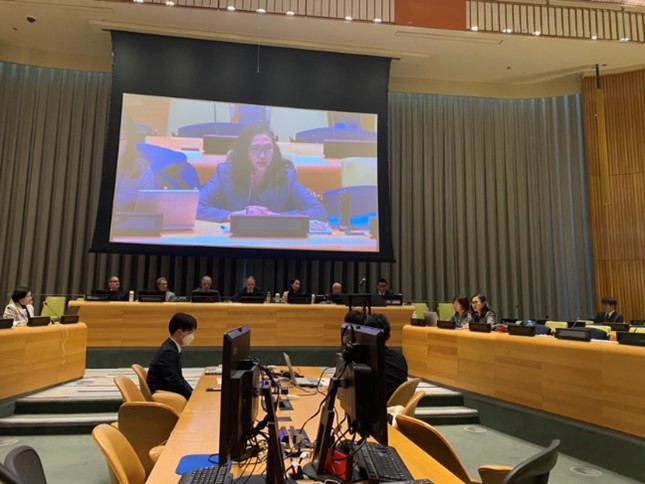
(Reporter: Ms. Yumiko Asayama, Chief Manager, Japan Water Forum)
